#JokeWriting
Explore tagged Tumblr posts
Text
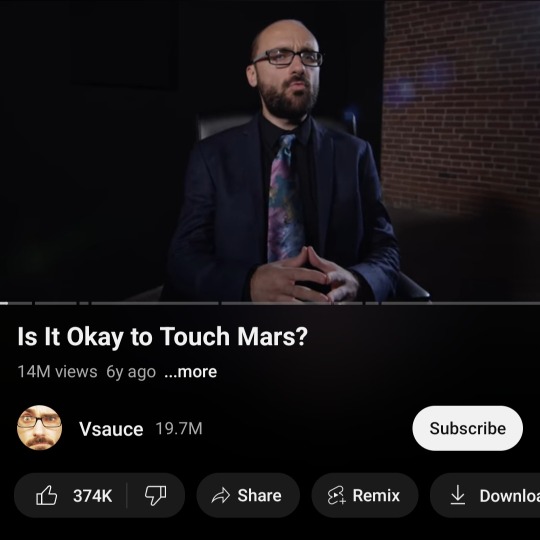
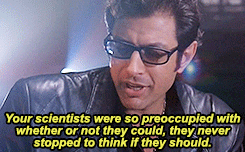
Okay for you? Or Mars? What if Mars is definitely not okay with you touching it? Ever thought about that? Fuck na. You only think about yourself.
118 notes
·
View notes
Text
HDMS027. The Business of Being Funny: What Harvard Taught Me About Comedy & Marketing
If there’s one thing I’ve learned after six weeks of Harvard’s Digital Marketing Strategy course, it’s this: marketing is just storytelling with a business plan. And GUESS WHAT??? That’s LITERALLY what stand-up comedy is!!!!!!! That's the thing: every comedian has a brand, whether they realize it or not!!! Every joke is a value proposition!!! Every social media post is a marketing touchpoint!!!
So why do so many comedians just post and pray??? What's worse, why are WE TAUGHT to just post and pray??? Why do comedy schools and standup classes teach us to grind away at open mics, hoping some magical industry gatekeeper happens to be in the crowd that night???? Is it because comedians are historically known for thinking of virality like a lottery ticket instead of a strategy????
Annnnnnd THAT is what this blog post is about. So let's recap:
I just completed the Harvard course (certificate now pending);
I now see how marketing actually makes sense for comedians;
And I’m going to break down exactly how we can apply business strategy to comedy without losing our souls in the process;
Oh, and if you’re new here: Welcome! I’m Laura, a stand-up comedian, producer, and content creator who went back to school (virtually) to learn the business side of being funny. Now I’m documenting everything so you don’t have to spend WEEKS or even MONTHS drowning in digital marketing strategy case studies!!
So let's continue this HDMS series. This is the final recap of Module 2, where I learned how to create a marketing plan that actually works. If you’ve ever felt stuck trying to grow an audience, book bigger shows, or make money off your comedy, this post is for you.
✨ LET'S BREAK IT DOWN ✨
I. The HDMS Hustle: What Module 2 Was Really About
If you’ve been following along, you know that Harvard’s Digital Marketing Strategy course isn’t just about running ads or selling products—it’s about building a marketing plan that actually works.
Module 2 focused on the four pillars of a strong marketing plan:
Marketing Objectives – What do you actually want to achieve??? More audience??? More money??? Both???
Target Audience – Who is your audience, really??? And how do you find more of them???
Value Proposition – What makes you stand out??? Why should people care about you???
Metrics – How to measure success without losing your mind???
Sounds corporate, right??? But here’s the thing: this is exactly what comedians need to build careers that don’t rely on luck!!!! Every comedian who has successfully blown up -- whether through TikTok, stand-up, or a podcast -- has unknowingly followed these four step!!! The ones still waiting for their big break??? Probably haven’t!!!
I’ll explain what each of these actually means for comedians, how I’m applying them to my own career, and what you can steal for yourself. Let’s rock and roll, babyyyyyy!!!
II. Defining Objectives (aka Stop Throwing Darts in the Dark)
If you’re a comedian, what’s your actual goal??? No, like, seriously. What the fuck is your endgame??? Is there even a gameplan??? I'm guessing the answer is "no"...
A lot of comedians say, “I just want to be funny and let the rest happen.” Which is cute, but also??? It’s not a strategy!!! Harvard drilled into my brain that clear objectives lead to clear action plans—and without a solid objective, you're just throwing content into the void, hoping something sticks. THAT. DOES. NOT. WORK!!!
In marketing, businesses set clear objectives before launching a campaign. Are they trying to:
Build awareness? (Get more people to know you exist.)
Drive conversions? (Get people to buy tickets, subscribe, etc.)
Increase engagement? (Turn followers into fans who show up)
These aren’t just random marketing terms. They’re essential for comedians too. Because if you don’t know what you’re trying to accomplish, then HOWWWW do you measure progress???
Let’s say you’re in year one of stand-up. You don’t have a fan base yet, and clubs aren’t booking you. Instead of saying “I just need to get funnier,” you could set objectives like:
Grow my social media following by 1,000 people in three months through short-form comedy clips.
Perform 50 open mics in six months to refine my set.
Sell out a small independent show in my city by strategically marketing to local audiences.
Each of these objectives has a clear goal, a timeline, and a way to measure success. That means you can ACTUALLY adjust your approach if something isn’t working, instead of hoping for a “big break” that may never come!!!
For me, 2025 is all about:
Selling out my live comedy shows consistently
Building an audience for long-form content (YouTube & podcasts)
Refining my brand as a comedian to attract sponsors/brand deals
And guess what??? From now on, I'M TRACKING ALL OF IT!!! What's the point of putting in the work without knowing if it works???
III. The General Audience IS NOT IT!!!
One of the biggest mistakes comedians (and creators in general) make is thinking their audience is “everyone.” I used to be guilty of this too—assuming that if I just made good content, the right people would magically find me. Welp. Harvard said NO, THANKS!!!
Big brands don’t market to everyone—they identify their most valuable audience segments and tailor their messaging accordingly. If Nike tried to be all things to all people, it would be an absolute disaster. Instead, they focus on:
Hardcore athletes who prioritize performance
Casual fitness enthusiasts who want comfort
Hypebeasts who just want cool-looking sneakers
Each of these groups gets different marketing, because they care about different things. Comedians need to do the same.
Instead of assuming “my comedy is for everyone who likes to laugh” (yikes), you need to ask yourself:
Who actually vibes with my sense of humor???
What kind of content are they already consuming???
Where do they hang out online and offline???
A dark, absurdist comedian isn’t going to attract the same fans as a high-energy, family-friendly comic. And that’s a good thing!!!! Niching down doesn’t limit you... IT HELPS YOU STAND OUT!!!
After years of trial and error (and some deep marketing analysis thanks to Harvard), I’ve realized my brand speaks most to:
Neurodivergent, millennial/Gen Z creatives who love deep dives and storytelling
Comedy nerds & stand-up fans who enjoy hearing comedians break down the craft
Fantasy, horror, and pop culture lovers who want smart, funny takes on their favorite genres
This means I DON’T waste energy trying to appeal to:
People who only like mainstream, easy-to-digest humor
Men who think female comedians aren’t “real” comedians
Audiences who don’t get (or care about) storytelling-style comedy
By knowing who I’m for and who I’m not for, I can focus on deepening my relationship with the right audience instead of desperately trying to win over people who just aren’t my vibe.
IV. Value Proposition (AKA Why Should People Care About You Specifically???)
Once you know who you’re talking to, the next question is: why should they care about you? This is where value proposition comes in—aka, what makes you different from every other comedian fighting for attention online???
Big brands spend millions of dollars refining their value proposition because they know people won’t just “get it” on their own. They need to make it crystal clear why their product is worth choosing.
Here’s what Harvard taught me about crafting a strong value proposition:
It should be specific (why you’re funny in a unique way)
It should be compelling (something people actually want)
It should be defensible (not easily copied by someone else)
For example, OOFOS shoes don’t just say, “We make comfy shoes.” They say, “We’re the only brand with OOfoam technology that absorbs impact and helps with recovery.” That’s specific, compelling, and defensible.
If your value proposition is just, “I tell jokes”—so does literally every comedian. Instead, think about what makes your comedy stand out:
Style – Do you tell long-form stories??? Quick one-liners??? Surreal humor???
Perspective – What life experiences shape your voice??? (e.g., immigrant stories, ADHD brain tangents, existential crises)
Branding – What visuals, topics, formats make you memorable???
After way too many years of “I don’t know, I just do comedy?” I finally have a solid answer:
"For millennial/Gen Z creatives and pop culture lovers, I’m the comedian who mixes storytelling, deep dives, and ADHD-fueled humor to make people feel seen, entertained, and informed—all while looking like a hot yet unhinged vampire."
Boom!!!!! Looking from my example, what does that tell people???
Who it’s for (creative, pop-culture-obsessed people)
What makes it unique (storytelling + deep dives + ADHD humor)
Why it’s compelling (it’s entertaining and insightful)
Why it’s defensible (not just anyone can replicate my life experiences, brain wiring, and hot vampire energy)
By nailing this down, I can now communicate my brand more clearly—whether it’s in my bio, my show descriptions, or my social media. Instead of hoping people “just get it,” I make sure they do.
V. So What Metrics Actually Matter For Stand Ups, Producers and Creators???
One of the biggest game-changers from this course??? Realizing that most comedians (my past self included) are measuring the wrong things.
We tend to obsess over:
Likes & Views – Cool, but do they translate into real fans???
Going Viral – Fun in the moment, but does it help you sell tickets or build a sustainable career???
Followers – Great for clout, but do they actually engage with your content???
Big brands don’t just chase numbers—they track the entire funnel to see where their audience is getting stuck.
Brand Awareness – Do people even know you exist??? (Measured by reach, impressions, press mentions)
Consideration – Do they care enough to check you out??? (Measured by profile visits, email signups, website clicks)
Conversion – Are they buying tickets, joining Patreon, subscribing to your content???
This was a lightbulb moment for me because most comedians only focus on the top of the funnel—like going viral, getting a ton of likes, shit like that. And then they wonder why they still struggle to sell tickets or build a loyal audience!!!!! See what I mean???
So instead of obsessing over going viral, we should be tracking:
Email signups – Because social media is unreliable, but an email list is direct access to your fans???
Engagement rate – Are people actually commenting, sharing, and DM’ing you???
Ticket sales & Patreon growth – Because that’s what pays the bills???
This means shifting my mindset from chasing high views to tracking high conversion. Would I rather have 100,000 passive followers or 1,000 ride-or-die fans who actually show up?
Before, I’d stress over a TikTok not hitting 10K views. Now? My focus is STRATEGIC. I only care about:
Are people signing up for my newsletter???
Are my followers DM’ing me about shows???
Are my ticket sales growing month over month???
This shift has completely changed how I approach marketing. Now, I make content with a clear end goal—not just “post and pray” but strategically building my audience for long-term success.
TL;DR: The Business of Being Funny
If there’s one thing I’ve learned from Harvard Digital Marketing Strategy, it’s this: being funny isn’t enough—you need a business strategy.
Most comedians are stuck in survival mode, waiting for their “big break,” hoping a viral clip will fix everything. But the ones who make it long-term are the ones who treat their career like a business. That means:
Understanding your audience instead of just performing for whoever’s in the room
Positioning yourself strategically so you stand out in a crowded field
Tracking what actually matters (email signups, ticket sales, engagement—not just likes and follows)
Playing the long game by building a real, sustainable career instead of chasing short-term wins
What’s next for me, you ask??? Well, I'm still focused on posting the remaining module reflections (2 modules complete, 4 to go!). But as of right now, as I draft this post, here's what I look forward to:
Another Harvard Course!!! That’s right—after everything I just went through, I signed up for Harvard’s Entrepreneurial Marketing course. This one is literally designed for self-employed creatives, comedians, and small business owners who need to learn how to market themselves effectively. I cannot wait.
Applying Everything I Learned!!! Over the next few months, I’ll be revamping my marketing strategy, experimenting with new audience growth tactics, and testing what actually works—all while sharing my journey in real-time with you.
Building My Email List – Because after everything I learned in this course, it’s clear that social media is unreliable, but direct access to my fans is priceless. If you want first dibs on new shows, behind-the-scenes content, and exclusive comedy insights, you can sign up for my newsletter (shameless plug, but hey, gotta practice what I preach).
And what about you??? What can YOU take away from the lessons shared in this module (and blog post specifically)???
Think Like a Business – If you’re a comedian, artist, or content creator, stop waiting for someone else to “discover” you. Position yourself, market yourself, and track your progress.
Define Your Audience & Value Proposition – What makes YOU different? Who are you actually trying to reach? Get specific.
Start Tracking Real Metrics – Don’t just post and hope for the best. Track engagement, email signups, and ticket sales. Focus on building your audience, not just growing numbers.
Experiment & Adjust – Marketing isn’t one-size-fits-all. Try different approaches, analyze the data, and pivot when needed.
All of that is to say that this is just the beginning of how I’m applying Harvard-level marketing to comedy. If you’ve been following these posts, you already know—I’m not keeping this knowledge to myself. I want other comedians and creatives to succeed too!!!!!!
Stay tuned, because this is just the start!!! More HDMS (Harvard Digital Marketing Strategy) posts to come!!! And when those posts come to an end, I shall begin the new Harvard course accompanied by a new reflection series HEM (Harvard Entrepreneurial Marketing).
See you in the next one. Tchauuu tchauuu <333
#ComedyMarketing#ComediansInBusiness#CreativeEntrepreneur#MarketingForCreators#StandUpStrategy#ComediansWhoMarket#BuildYourBrand#ContentCreatorTips#StandUpComedy#ComedyLife#ComediansOfInstagram#ComedyBusiness#IndieComedian#DIYComedy#ComedyCareer#JokeWriting#ComediansOfTikTok#MarketingStrategy#PersonalBranding#AudienceGrowth#DigitalMarketingTips#SocialMediaForCreators#CreativeBusiness#MarketingForArtists#NeurodivergentCreator#AuDHDLife#ADHDCreator#CreativeEntrepreneurs#FreelancerLife#SelfMadeComedian
0 notes
Text
I haven't gone outside for two days because cold and the jokewriting is suffering
9 notes
·
View notes
Photo
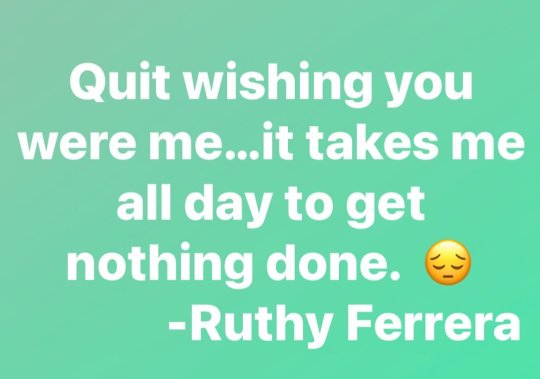
#joke #jokewriting #comedy #latinosenusa🇺🇸 #latincomics #standupcomedy #funnies https://www.instagram.com/p/CqLWgbYN-Zd/?igshid=NGJjMDIxMWI=
0 notes
Photo
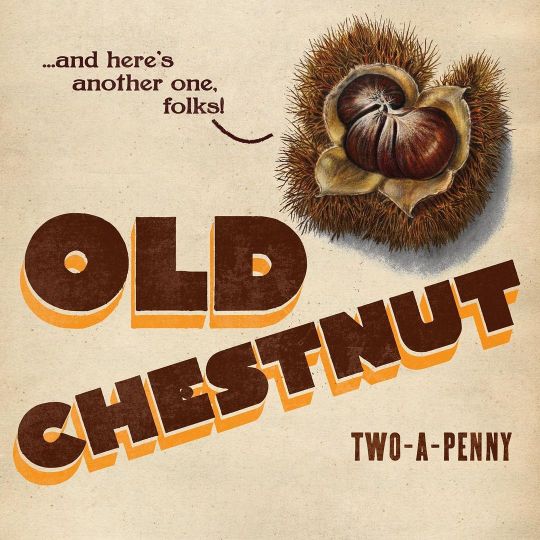
Old Chestnut just keeps coming out with ‘em. ‘Relentlessly, gratingly upbeat’ says the Daily Sketch. ‘What have we done to deserve this?’ asks the Northampton Southampton & Littlehampton Advertiser. ‘Please contribute to our appeal to buy him a one-way ticket to the South Pole,’ pleads Apathy Weekly. #theoldonesarethebestones #oldchestnut #jokes #jokewriting #typography #fonts #vintagefonts #design #retrosupplyco #chestnut #newspapers #botanical #botanicalart https://www.instagram.com/p/CddoLqqqRQD/?igshid=NGJjMDIxMWI=
#theoldonesarethebestones#oldchestnut#jokes#jokewriting#typography#fonts#vintagefonts#design#retrosupplyco#chestnut#newspapers#botanical#botanicalart
0 notes
Photo
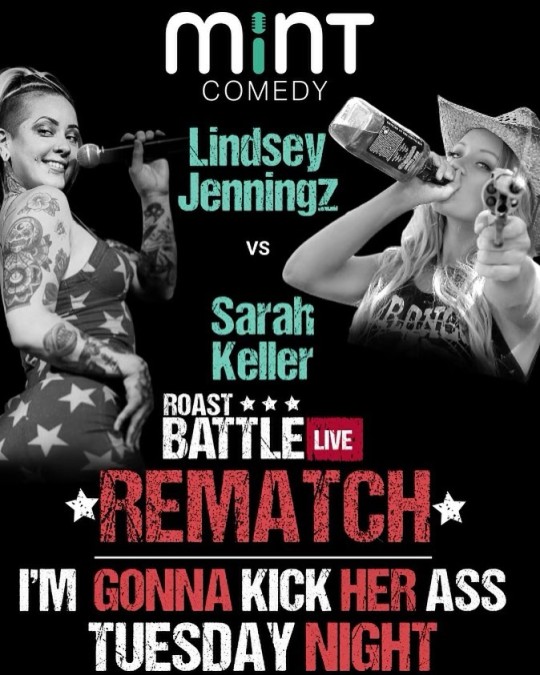
This Tuesday night, I’m so fucking excited to return to the @thecomedystore @roastbattle stage and battle one of my favorite opponents ever @sarahkeller07 ! You dont want to miss this rematch!!! 🔥🔥🔥watch it live in person or if you’re not in LA, don’t worry! @realmintcomedy has you covered! Watch the show in HD and feel like you’re there with us!!! ❤️🔥✨ . #roastbattle #thecomedystore #roast #standup #jokewriting #jokes (at The Comedy Store) https://www.instagram.com/p/CRpt-DTrU8d/?utm_medium=tumblr
0 notes
Text
Some Things To Consider While Writing Jokes
Lately I have been doing one on one Joke Machine sessions with comics of all levels where I go over all the material they send me and see if we can improve upon that material. I’ll also watch a set they send and give feedback. It’s been interesting and very informative to see the different ways people stray from doing their best stuff the best way. Generally speaking, the comics who came to me were concerned with self awareness and open to criticism. That allows them to progress so much further than someone who would scoff at the very idea of doing that. I have a lot of respect for comics willing to do whatever it takes to get better.
Earlier this month I was asked by Blue Ridge Comedy Club in Bristol, TN if I would be able to do a 3 hour joke writing seminar. Having recently done those Joke Machine sessions with comics turned out to be crucial in putting together a 3 hour lesson plan of sorts. That brings me to this: an attempt at a condensed version of that seminar. Just some things to keep in mind and steps to consider when writing jokes that I think will help you no matter what your particular style is. and with that; a caveat of sorts: I cannot make you funnier than you are. I can’t tell you how to guarantee yourself a successful comedy career. I can tell you that the most important aspect to a succesful comedy career is being good at comedy. I mean, really really good. Better than what anyone would expect. Try to get into a mindset of constant progression. Always try to envision what the better you looks like, and then be that you the next time you’re on stage. It’s the only way I know of to reach the level necessary to do comedy professionally. Ok, let’s get into it.
1st RULE TO WRITING JOKES: YOU MUST WRITE
This is something people don’t like to hear. Many comics, when asked about their writing process, will say something to the effect of “I don’t really sit down to write.” Just know that this is bullshitting yourself. If you want to get good at something hard, you can’t be afraid to dive in and work. The time you spend on stage is a fraction of the time you put into your act, or should be. Set aside a couple hours every day to sit down and write. You will find that you can’t force your creativity to a tight schedule. That’s ok, don’t let that stop you from trying. When you are in a groove/the zone/whatever...when things are popping, RIDE THAT OUT. Cancel appointments if you have to. The time spent in the zone has to be maximized. That is as important as sitting down to write every day. Don’t bring things to a halt while you are in a groove and think that you will resume that creative rush later: you won’t. So, big takeaway here is write often, and when in a groove, ride it out.
TALK OUT THE JOKE AS YOU WRITE IT
Stand up is only written to be spoken. As you are writing, talk out the joke. Find a comfortable rhythm. Find that perfect wording and assess each line. Always keep in mind that the joke’s final form is vocal. I personally hate writing in coffee shops for this reason. I can’t say messed up shit out loud in a coffee shop. I like writing outside if the weather is nice. If that’s not doable, I write at my desk. If you are able to, try to have a dedicated office space where everything you do while sitting at that desk is career related. The second you get away from important things and start dorking around on facebook, get away from the desk.
WORD ECONOMY
My definition of word economy may be more in depth than other people’s, but it isn’t about just making everything shorter or using less words. Yes, conciseness is key, but overall just always consider every line you say. Does that line serve a purpose? Does it need to be said? Could it be said better? Remember that a setup is just the information needed to get the joke. If you can make the setup funny while being concise, perfect, but it’s more important that it is concise. One thing that helps me is to write jokes in outline form. Write down only the lines you know you need to say and have a space in between them. Then think, “get from this line to the next line as quickly and naturally as possible.” I find if I write down the transitional sentences I get hung up on them. It helps me to think of everything I say filling a balloon up with air, so the longer it takes me to get to the next laugh, the bigger the pop(laugh) should be. Sometimes I won’t be comfortable with how much setup is required to get to a mediocre pop, so I will find an “on the way” joke to get a little pop along the way. That visualization seems to help a lot of people I have shared it with.
STEP 1 TO WRITING ANY JOKE: IDENTIFY THE PREMISE
If I were to ask you, “what’s the premise of the joke,” do not say “well first I say this...” No, I mean the concept of the joke. The idea that is funny. If you just come up with something that’s funny, assess it and be able to explain why. You don’t want to have to explain why it’s funny to an audience, but you should be able to explain what is funny so that you can find the best way to get that premise across to people. Drill that into your head: Know the premise. KNOW THE PREMISE. Know the premise.
STEP 2: HOW MUCH MEAT DOES THIS PREMISE HAVE?
As you identify the premise, consider how much meat there is to that premise because that will determine what kind of joke it should be. You may think you have majority of the joke figured out and then need to stop and zoom out. Ask yourself, is this actually one aspect of a much wider premise than I originally thought? If so, the rest of the joke may kind of write itself.
STEP 3: GET THE JOKE TO A STAGEWORTHY FORM
Remember to keep talking out the joke vocally and find that wording that works. Don’t work it most of the way out and put a pin in it. Get the joke to a point where you can try it on stage. Don’t put too much on yourself. Doing any joke for the first time is an undertaking, but you have got to follow through and write a complete joke once you start. Not doing that is a really bad habit. Once you try the joke on stage, consider what worked/what didn’t, then change the joke as necessary, and when you do: make sure you have a new complete version to try. Remember that a joke is always malleable. You can always change it/make it better. Do new jokes right up top. You may want to open with something reliable to get em first, but then do the new thing. Don’t put off doing the new thing. If you are confident in how funny it is, go ahead and open with it.
KEEP IT SIMPLE
Stand up is just one premise presented to completion, then another premise presented and performed to completion. One after another. Over and over and over. Don’t make it more complicated than that. Don’t try to weave some complicated tapestry filled with little half baked joke ideas and expectations from the audience. Keep it simple, crisp, and clear. This joke, then this joke, then this joke. One after another. That’s it.
HAVE FUN
I have learned over 15 years of comedy that the one way to make sure you don’t do well is to not have fun doing it. If you can see that this show is gonna be a nightmare, find a way to make it a fun nightmare. It’s the only way to do well. The good news is: this is always possible, I promise. You will bomb occasionally: There is no escaping it. Do not concede to bombing though. Don’t speed through parts of the joke to get to the part you think they’ll like. If you don’t like how things are going, slow down. If things are going well, speed up a little.
31 notes
·
View notes
Photo
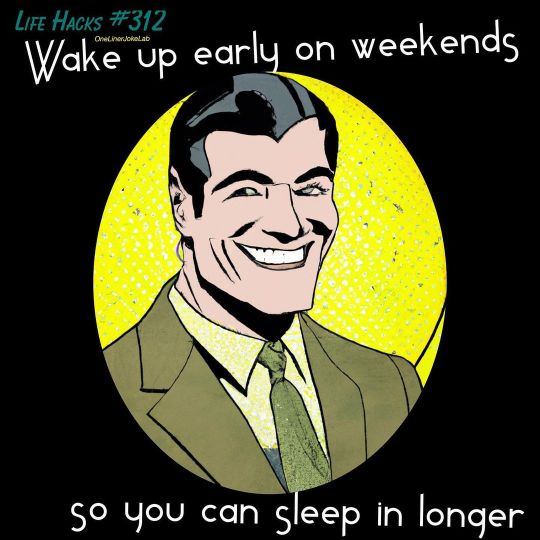
https://www.instagram.com/one_liner_joke_lab/
27 notes
·
View notes
Text
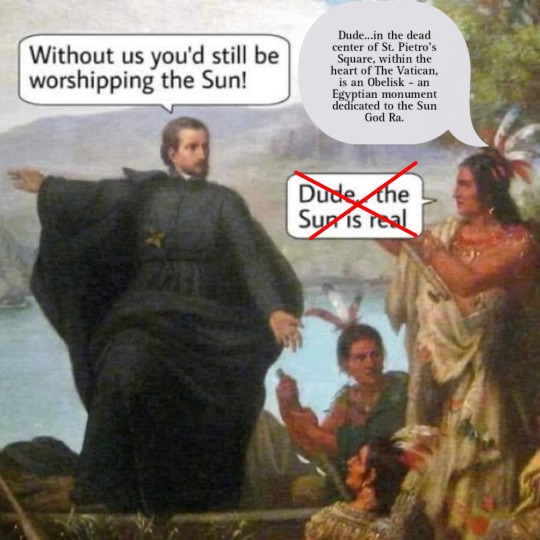
Dude...Jesus...Sun of God, no?
Dude...Y'all moved the Sabbath from Saturday to Sunday!
Dude...That Obelisk was imported all the way from Egypt!
Dude...In 1817, circular stones were set to mark the tip of the obelisk's shadow at noon...
...as the sun entered each of the signs of the zodiac...
...making the obelisk a gigantic sundial's gnomon!
#there i fixed it#i make joke#i make jokes#joke writing#jokewriting#comedy#satire#religious satire#i fixed it#nailed it#obelisk#egypt#vatican#sun god#ra#sun worship#religion#sundial#zodiac#gnomon#jokes#joke#i got jokes
29 notes
·
View notes
Photo

😂😂😂😂😂😂😂😂😂 #funny #jokes #joke #funnymemes #funnyjokes #funnyjoke #bookjoke #writingjoke #jokerwriters #jokewriting #colon https://www.instagram.com/p/By9m9v8AbUn/?igshid=bceopsgd6laq
#funny#jokes#joke#funnymemes#funnyjokes#funnyjoke#bookjoke#writingjoke#jokerwriters#jokewriting#colon
0 notes
Photo
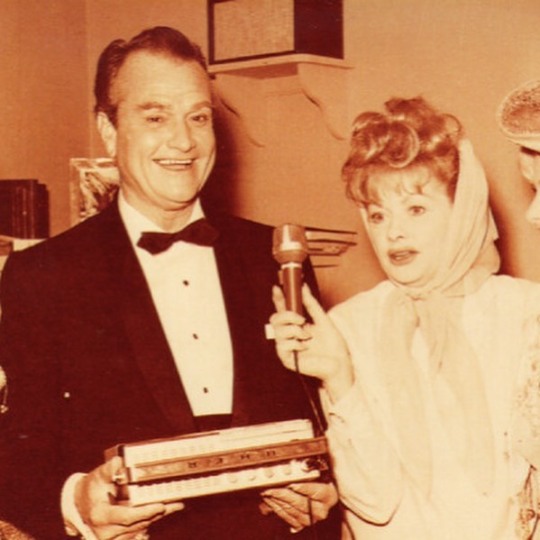
Happy Birthday Red Skelton! As rubber-faced as Jim Carey with the high energy of Robin Williams, Red was the premier comedian of his day. Because he was always clowning around, I get the sense that he may have been joking here in this interview: ’Red Skelton has copyrighted every joke he has written since he was 10 (“or maybe not until I was 12”), when he wrote down a joke and sent it to himself by registered mail to have proof of where and when he wrote it. He once was going to sue Lucille Ball (“a dear friend”) for stealing a skit, the one in which she drinks some tonic and gets drunk. But then he figured, “To hell with ‘em.” He did sue Keenan Wynn. “But like my mother said, you can write ‘em faster than they can steal ‘em.”’—The Orlando Sentinel, May 27, 1989. #lucilleball #redskelton #happybirthday #oldhollywood #newsarticle #copyrightinfringement #lawsuit #jokewriter #keenanwynn #clowningaround #clown #orlandosentinel https://www.instagram.com/p/CReQfWJFSDR/?utm_medium=tumblr
#lucilleball#redskelton#happybirthday#oldhollywood#newsarticle#copyrightinfringement#lawsuit#jokewriter#keenanwynn#clowningaround#clown#orlandosentinel
1 note
·
View note
Video
instagram
#storytelling #songwriter #scriptwriter #comedywriter #jokewriter #lyricist #lyrics #writer #author #musician #musicians #creativewriting #creativeprocess #arts #poetry #scriptdevelopment #comedians #songwritingchallenge #singersongwriter #creativebc #cbcarts #books #scripts #makemusic #AGT #TheVoice #maskedsinger (at ProPics Canada Photography) https://www.instagram.com/p/CUEJJl2JwHR/?utm_medium=tumblr
#storytelling#songwriter#scriptwriter#comedywriter#jokewriter#lyricist#lyrics#writer#author#musician#musicians#creativewriting#creativeprocess#arts#poetry#scriptdevelopment#comedians#songwritingchallenge#singersongwriter#creativebc#cbcarts#books#scripts#makemusic#agt#thevoice#maskedsinger
0 notes
Text
129. Shaun Eli Corporate comic and joke writer for Jay Leno
#amazonpodcasts#amigospc#brainchampagne#comedy#corporate#corporatecomedy#corporatecomic#itunes#jayleno#joketelling#jokewriter#latenight#newyorkcomic#podcast#podcastinterview#podchaser#podernfamily#shauneli#spotify#standup
0 notes
Text
EWCK 187 w/ Stephen Bolles "Pretty Kitty, Pretty Kitty, Pretty Kitty."
#beatbox#comedy#enjoyment#evolving#funny#gasdigital#goodhang#jokewriting#lifelessons#lol#longhair#manbun#nyc#philly#prowrestling#quarantinewedding#smile#subscribe#unpopular#weightloss
0 notes
Photo
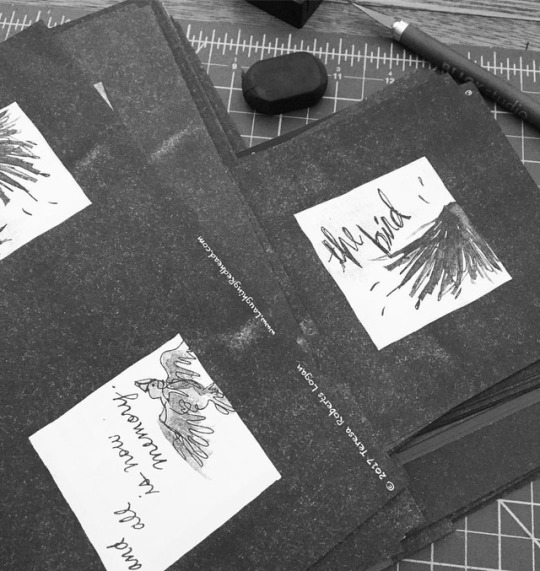
Production line for #TheBird, my new #risograph #printing of my #zine about #grief and #memory. Thanks, @hellyeahdesign!! Getting ready for @dinkdenver #indiecomics expo, next weekend in #DENVER (our home for 20 years, can’t wait to see old friends and make some new ones!) #indiepublishing #comics #comic #writing #zines #zinefair #originalartwork #haunted #spooky #balletghost See my #insta feed for info on my #jokewriting #workshop and the #funny #haha #panel I’m moderating! #art #cartoons #cartoonist
#haunted#jokewriting#indiepublishing#zines#denver#insta#memory#comics#zinefair#spooky#comic#haha#art#grief#risograph#zine#indiecomics#cartoonist#panel#printing#originalartwork#writing#thebird#balletghost#workshop#funny#cartoons
0 notes
Text
I know it's passe to compliment Tina Fey but literally any other showrunner would've forced a Liz & Jack pairing at some point even if it was just for an episode and it would sucked for a billion reasons but she never did That so props also she was the best tv jokewriter of our time and 30 rock is the best sitcom of the last fifteen years
3 notes
·
View notes